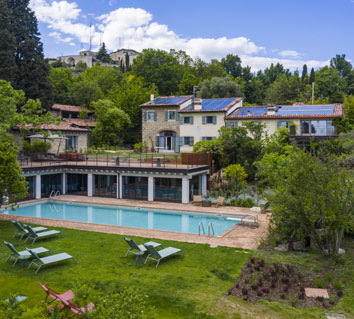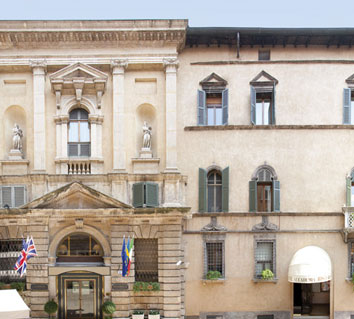Arrangement from Friday 21 to Wednesday 26 June 2024,
5 nights
Arena Festival
When Giacomo Puccini died in Brussels in November 1924 as a result of cancer, his composition of "Turandot" was still unfinished. The composer Franco Alfano (1876-1954) was then commissioned to complete the opera. At the premiere at the Teatro alla Scala, the work was performed as a homage to Puccini only up to Liù’s death aria. The conductor Arturo Toscanini addressed the audience at this point: "Here the opera ends, because this is where the master died".�"Turandot" can be regarded as the culmination of Puccini’s creative output, since it perfectly combines all four elements that characterize his incomparable style: The slave Liù symbolizes the lyrical-sentimental element, the pair Turandot/Kalaf the heroic, while the three courtiers stand for the comic-grotesque. The exotic element is achieved by using authentic Chinese sages and pentatonic motifs.�Compared to his other works, "Turandot" has greater echoes of contemporary musical trends, as well as dissonances, polytonal effects and, for the traditionally trained listener, irritating effects in singing and orchestration, making it - compared to his earlier operas - long less popular with the audience. In the meantime, however, Puccini’s last work has established itself on the opera stages. In it, his life’s work is bundled and gives room for speculation as to what the composer’s further musical development might have been like.
Turandot♪ - G. Puccini, the 22
non communiqué - Franco Zeffirelli
Anna Pirozzi, Daria Rybak, Gregory Kunde, Riccardo Fassi
Arena
Giuseppe Verdi (1813-1901) wrote his “Aida” at a politically highly explosive time: Germany and France were on the brink of war (Franco-Prussian War 1870/71), which is why the premiere could not take place until a year later after the scheduled date: Because both the stage sets and the costumes were stuck in the Prussian occupied Paris. The opera had been commissioned by the Egyptian Viceroy Ismail Pasha. However, not, as often wrongly assumed, for the inauguration of the Suez Canal, but for the opening of the new opera house in Cairo in 1871.�Aida shows the versatility of this exceptional Italian composer in its entirety: large-scale mass scenes and choruses are juxtaposed with equally intimate, chamber-play-like scenes that reveal a soul drama that is ingenious in every detail. In this respect, the work can certainly be interpreted as a turning point in Verdi’s oeuvre, as it not only focuses on the vocal parts, but also assigns a new and leading role to the orchestra.�Verdi received the 150,000 gold francs demanded for his composition, probably the highest honorarium granted to a composer to date. In addition, he demanded his own trumpets for the famous Triumphal March, the so-called Aida trumpets, which had to be commissioned as a special production. Today "Aida" is one of the most successful of the great operas of the 19th century.
Aida♪ - G. Verdi, the 23
non communiqué - Stefano Poda
Marta Torbidoni, Agnieszka Rehlis, Amartuvshin Enkhbat, Angelo Villari, Rafal Siwek, Giorgi Manoshvili
Arena

